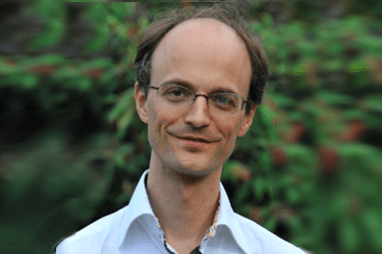Mentoring visit lecture – prof. Christoph Harms (Charité Universitaetsmedizin, Centre for Stroke Research, Berlin)

06 04 2023
Category: Events, I.1.1/IV.1.1
We are pleased to announce the upcoming open lecture “Prediction of Stroke Outcome in Mice Based on Non-Invasive MRI and Behavioral Testing and its Modulation by Local Inflammation and Aging”, prepared within the framework of the mentoring visit of Action I.1.1/IV.1.1 “Mentoring Programme”.
Christoph Harms’ research focuses on rodent stroke research, brain imaging, and molecular stroke therapeutics. He is especially interested in how the brain defends itself (“endogenous neuroprotection”) and how the brain’s plasticity might be boosted to promote stroke healing and functional recovery. Collateral plasticity and post-stroke angiogenesis, he argues, are critical requirements for retuning distorted networks and reducing symptom load. On a molecular level, inflammation is the key modulator that shapes the microenvironment by resident and invading cells and their interplay with the microbiome. Age-associated clonal hematopoiesis and local inflammation are therefore interesting therapeutic targets to modulate these inflammatory responses.
Christoph Harms was appointed tenured Professor for Molecular Stroke Research at Charité Universitaetsmedizin Berlin, Center for Stroke Research Berlin, Department of Experimental Neurology in 2015.
During his lecture, prof. Harms will discuss recent advances in ischemic stroke research. He will first focus on the measures of predicting stroke outcomes in humans and in murine models. Human studies have used subacute deficit or magnetic resonance imaging to predict post-stroke outcomes. The majority of preclinical stroke research uses mice, therefore precise models predicting recovery are key for accurate evaluation of tested therapies. New methodology of quantifying functional post-stroke functional recovery in murine models, combined with co-registering magnetic resonance images of stroke lesions on the Allen Mouse Brain Atlas, allowes to predict subacute and persistent deficits during post-stroke recovery.
In the second section, prof. Harms will discuss how local inflammation modulates stroke recovery in mice, with an emphasis on IL-6 signaling in diverse compartments and cell types. In particular, we will focus on the therapeutic opportunity to modulate paracrine cerebral IL6 signaling by lithium or by targeting Zincfinger protein 580 (Zfp580). Its potential to improve endothelium resilience to ischemia, drive neuroprotection, and to promote functional outcome will be presented.
Clinical evidence on aging as a risk factor for recurrent stroke and worse outcomes will conclude the session. Age increases stroke risk and clonal hematopoiesis (leukemia-associated mutations in hematopoietic stem cells). In a three-year PROSCIS incident stroke cohort, TET2 mutations and clone size were strongly associated with composite vascular endpoints. Clinical data, including IL-6 receptor genotype effects, will be presented with preclinical research plans to study pathophysiological causes.
The lecture will take place on 26 April, 10:00-12:00, in auditorium 103B of the Faculty of Biology (ul. Miecznikowa 1).
You are welcome